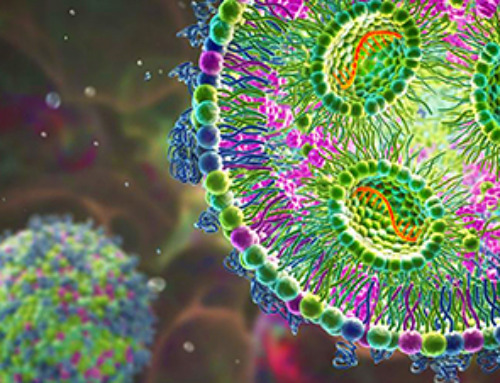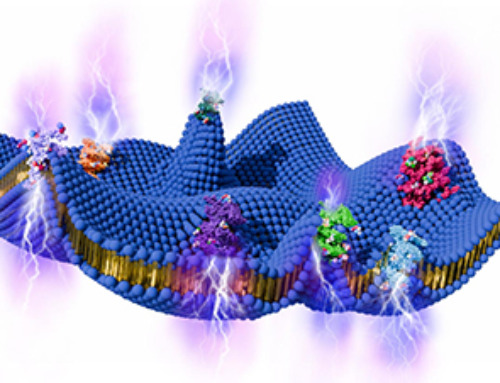Many of the individuals released to long-term acute care facilities suffered from conditions that lasted for over a year.
Researchers at UC San Francisco studied COVID-19 patients in the United States who survived some of the longest and most harrowing battles with the virus. They discovered that approximately two-thirds of these survivors continued to experience a range of physical, psychiatric, and cognitive issues up to a year afterward.
The study, which was recently published in the journal Critical Care Medicine, reveals the life-altering impact of SARS-CoV-2 on these individuals, the majority of whom had to be placed on mechanical ventilators for an average of one month.
Too sick to be discharged to a skilled nursing home or rehabilitation facility, these patients were transferred instead to special hospitals known as long-term acute care hospitals (LTACHs). These hospitals specialize in weaning patients off ventilators and providing rehabilitation care, and they were a crucial part of the pandemic response.
Among the 156 study participants, 64% reported having a persistent impairment after one year, including physical (57%), respiratory (49%), psychiatric (24%), and cognitive (15%). Nearly half, or 47%, had more than one type of problem. And 19% continued to need supplemental oxygen.
The long-term follow-up helps to outline the extent of the medical problems experienced by those who became seriously ill with COVID early in the pandemic.
"We have millions of survivors of the most severe and prolonged COVID illness globally," said the study's first author, Anil N. Makam, MD, MAS, an associate professor of medicine at UCSF. "Our study is important to understand their recovery and long-term impairments, and to provide a nuanced understanding of their life-changing experience."
Disabilities from long-term hospital stays
Researchers recruited 156 people who had been transferred for COVID to one of nine LTACHs in Nebraska, Texas, Georgia, Kentucky, and Connecticut between March 2020 and February 2021. They questioned them by telephone or online a year after their hospitalization. The average total length of stay in the hospital and the LTACH for the group was about two months. Their average age was 65, and most said they had been healthy before getting COVID.
In addition to their lingering ailments from COVID, the participants also had persistent problems from their long hospital stays, including painful bedsores and nerve damage that limited the use of their arms or legs.
"Many of the participants we interviewed were most bothered by these complications, so preventing these from happening in the first place is key to recovery," Makam said.
Although 79% said they had not returned to their usual health, 99% had returned home, and 60% of those who had previously been employed said they had gone back to work.
They were overwhelmingly grateful to have survived, often describing their survival as a "miracle." But their recovery took longer than expected.
The results underscore that it is normal to for someone who has survived such severe illness to have persistent health problems.
"The long-lasting impairments we observed are common to survivors of any prolonged critical illness, and not specific to COVID, and are best addressed through multidisciplinary rehabilitation," Makam said.
Reference: "One-Year Recovery Among Survivors of Prolonged Severe COVID-19: A National Multicenter Cohort" by Anil N. Makam, Judith Burnfield, Ed Prettyman, Oanh Kieu Nguyen, Nancy Wu, Edie Espejo, Cinthia Blat, W. John Boscardin, E. Wesley Ely, James C. Jackson, Kenneth E Covinsky and John Votto, 10 April 2024, Critical Care Medicine.
DOI: 10.1097/CCM.0000000000006258
The work was supported by grants from the National Institutes of Health/National Institute on Aging (K23AG052603), the UCSF Research Evaluation and Allocation Committee (Carson and Hampton Research Funds), and the National Association of Long Term Hospitals. The authors had no conflicts of interest to disclose.
News
Nanomedicine in 2026: Experts Predict the Year Ahead
Progress in nanomedicine is almost as fast as the science is small. Over the last year, we've seen an abundance of headlines covering medical R&D at the nanoscale: polymer-coated nanoparticles targeting ovarian cancer, Albumin recruiting nanoparticles for [...]
Lipid nanoparticles could unlock access for millions of autoimmune patients
Capstan Therapeutics scientists demonstrate that lipid nanoparticles can engineer CAR T cells within the body without laboratory cell manufacturing and ex vivo expansion. The method using targeted lipid nanoparticles (tLNPs) is designed to deliver [...]
The Brain’s Strange Way of Computing Could Explain Consciousness
Consciousness may emerge not from code, but from the way living brains physically compute. Discussions about consciousness often stall between two deeply rooted viewpoints. One is computational functionalism, which holds that cognition can be [...]
First breathing ‘lung-on-chip’ developed using genetically identical cells
Researchers at the Francis Crick Institute and AlveoliX have developed the first human lung-on-chip model using stem cells taken from only one person. These chips simulate breathing motions and lung disease in an individual, [...]
Cell Membranes May Act Like Tiny Power Generators
Living cells may generate electricity through the natural motion of their membranes. These fast electrical signals could play a role in how cells communicate and sense their surroundings. Scientists have proposed a new theoretical [...]
This Viral RNA Structure Could Lead to a Universal Antiviral Drug
Researchers identify a shared RNA-protein interaction that could lead to broad-spectrum antiviral treatments for enteroviruses. A new study from the University of Maryland, Baltimore County (UMBC), published in Nature Communications, explains how enteroviruses begin reproducing [...]
New study suggests a way to rejuvenate the immune system
Stimulating the liver to produce some of the signals of the thymus can reverse age-related declines in T-cell populations and enhance response to vaccination. As people age, their immune system function declines. T cell [...]
Nerve Damage Can Disrupt Immunity Across the Entire Body
A single nerve injury can quietly reshape the immune system across the entire body. Preclinical research from McGill University suggests that nerve injuries may lead to long-lasting changes in the immune system, and these [...]
Fake Science Is Growing Faster Than Legitimate Research, New Study Warns
New research reveals organized networks linking paper mills, intermediaries, and compromised academic journals Organized scientific fraud is becoming increasingly common, ranging from fabricated research to the buying and selling of authorship and citations, according [...]
Scientists Unlock a New Way to Hear the Brain’s Hidden Language
Scientists can finally hear the brain’s quietest messages—unlocking the hidden code behind how neurons think, decide, and remember. Scientists have created a new protein that can capture the incoming chemical signals received by brain [...]
Does being infected or vaccinated first influence COVID-19 immunity?
A new study analyzing the immune response to COVID-19 in a Catalan cohort of health workers sheds light on an important question: does it matter whether a person was first infected or first vaccinated? [...]
We May Never Know if AI Is Conscious, Says Cambridge Philosopher
As claims about conscious AI grow louder, a Cambridge philosopher argues that we lack the evidence to know whether machines can truly be conscious, let alone morally significant. A philosopher at the University of [...]
AI Helped Scientists Stop a Virus With One Tiny Change
Using AI, researchers identified one tiny molecular interaction that viruses need to infect cells. Disrupting it stopped the virus before infection could begin. Washington State University scientists have uncovered a method to interfere with a key [...]
Deadly Hospital Fungus May Finally Have a Weakness
A deadly, drug-resistant hospital fungus may finally have a weakness—and scientists think they’ve found it. Researchers have identified a genetic process that could open the door to new treatments for a dangerous fungal infection [...]
Fever-Proof Bird Flu Variant Could Fuel the Next Pandemic
Bird flu viruses present a significant risk to humans because they can continue replicating at temperatures higher than a typical fever. Fever is one of the body’s main tools for slowing or stopping viral [...]
What could the future of nanoscience look like?
Society has a lot to thank for nanoscience. From improved health monitoring to reducing the size of electronics, scientists’ ability to delve deeper and better understand chemistry at the nanoscale has opened up numerous [...]





















